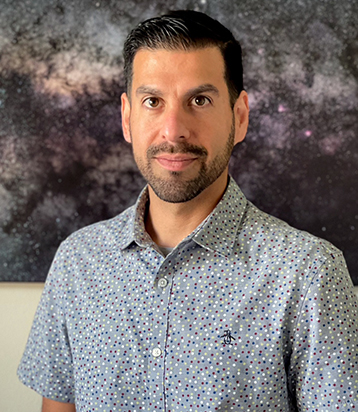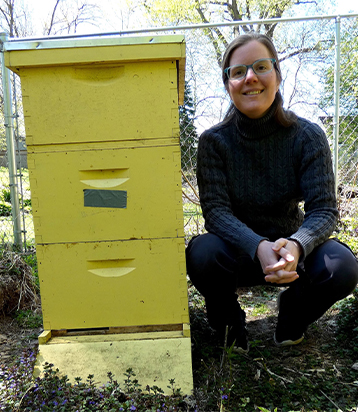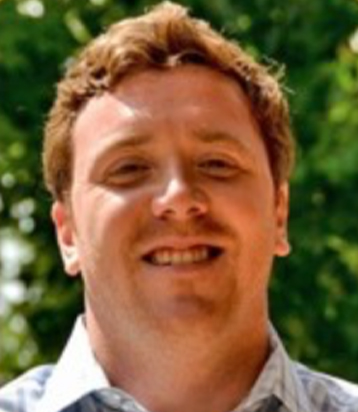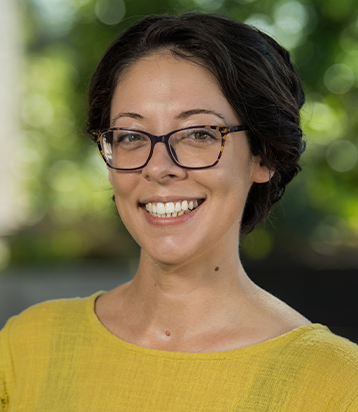Postdoctoral Program in Interdisciplinary Computation
The surge in the need for students from all disciplines of study to graduate with computational skills has increased demand for faculty members equipped with the ability to teach such skills. This surge, combined with the difficulties of competing with high-paying industry jobs for doctoral graduates with computing backgrounds, has led to an imbalance in the ratio of students to professors in computational fields. With this issue in mind, Harvey Mudd College has launched a pilot three-year postdoctoral program for outstanding candidates with or about to receive a PhD in an area of science or who have a high interest in gaining strong computational skills.
Harvey Mudd is recruiting candidates with a passion for, and ability in, teaching, research, and promoting diversity and inclusion. In addition to providing postdoctoral scholars with an ideal location to pursue in-depth research and novel pedagogical methods, the scholars will gain the experience and preparation necessary for working at a small liberal arts college.
The program promotes the inclusive curriculum and pedagogy that has made Harvey Mudd so successful in graduating women and under-represented minorities in all STEM areas including CS, engineering, and physics. An important component of PIC is an annual one-week summer workshop on inclusive pedagogy and curriculum for computational courses that will be open to faculty and senior graduate students across the United States.
Our goal is to train recent PhD recipients in scientific fields to help them develop as researchers, become excellent teachers of computational courses, and obtain faculty positions that bridge their home discipline and computer science.
The PIC provides paid ($75K/year), three-year, postdoctoral positions at HMC for three or four people. In their first year, the postdoctoral scholars will audit two CS courses per semester, and collaborate with their HMC faculty advisor on research. In the second year, the postdoctoral scholar will contribute to teaching in two computational courses, one taught by their advisor and one by a CS faculty member (CS teaching supervisor), while continuing to do research with their advisor. In their third year, postdocs will contribute to teaching computational courses as well as continuing their research. Third-year teaching opportunities may include teaching their own computational courses, serving as instructional staff, or helping design and teach new courses.
The first cohort of PIC scholars are collaborating with HMC faculty members to conduct research in one of this year’s four focus areas:
1. Multi-Robot Planning and Control
Within HMC’s Lab for Autonomous and Intelligent Robotics, students and faculty are investigating new planning and control techniques motivated by autonomous underwater robot systems. The lab is focused on three key projects: intelligent shipwreck search via AUVs, autonomous tracking and following of shark aggregations, and underwater micro-robot systems. Interested applicants should have conducted their PhD research in on or more of the following areas: multi-robot control, distributed state estimation, multi-robot task or motion planning, underwater robot systems, and micro-robotics. The scholar will collaborate with LAIR director Christopher Clark, who can be reached via email (clark@hmc.edu) to answer any questions.
2. Microbial genome evolution
The Computational Evolution Lab at Harvey Mudd develops tools to reconstruct the evolutionary history of genomes in bacteria and archaea. Recent projects have focused on inferring horizontal transfer events in clades of closely related species. The lab is interested in applying these tools (and extending them as appropriate) in diverse groups of microbes. Interested applicants should have conducted their PhD research in some area of microbiology and have a strong desire to improve their computational/programming skills. The scholar will collaborate with Eliot Bush (bush@hmc.edu), who can be contacted with questions.
3. Air quality and climate change
The Hawkins lab at Harvey Mudd aims to address the general question, “How does air pollution affect climate and anthropogenic climate change?” Active research projects include local measurements of aerosol chemical and physical properties, laboratory simulations of cloud phase reactions, and intelligent air quality sampling in collaboration with LAIR (above). Interested applicants should have conducted their PhD research in on or more of the following areas: measurements or modeling of aerosol chemical or optical properties, regional or global air quality modeling, or air pollution source apportionment. Familiarity with aerosol mass spectrometry is welcomed but not required. The scholar will collaborate with Lelia Hawkins, who can be reached via email (lhawkins@hmc.edu) to answer any questions.
4. Collective behavior in social insects
The Harvey Mudd College Bee Lab studies the behavior of social insects, particularly bees and ants, to understand how these relatively simple creatures work together to gather, process and use information about a complex, heterogeneous environment. For example, honey bee colonies search a large area to determine the location and quality of floral resources, and allocate foragers among them in a way that makes food collection both efficient and flexible. Turtle ant colonies divide a limited number of defensive soldiers among multiple different nests, which may vary in defensibility, quality, and accessibility from other nests. Computational projects could involve the development of computational simulations of colony behavior, or software for image and/or video processing. Interested applicants should have completed their PhD in biology or a related field, and have some background in complex systems, computational simulation, and/or computer vision. Knowledge of social insects is desirable but not required. The scholar will collaborate with HMC Bee Lab director, Matina Donaldson-Matasci, who can be reached via email (mdonaldsonmatasci@g.hmc.edu) to answer any questions. For more information on topics of interest and ongoing research projects, see the student-authored lab blog.
Funding and Application
To support research and scholarly activities, the post-doctoral scholars receive $20K/year of discretionary funds that can be used for hiring summer research students (~7K/student/summer), conference travel, materials, and supplies.
Applications are currently closed.
Post-Doc Fellows
For the 2020–2021 academic year, HMC welcomes our first cohort of PIC scholars. These scholars have accomplished and are producing great work that HMC would like to highlight.

Alberto P. Soto
Alberto P. Soto is a Mexican-American scientist from Pomona, California fascinated by animal behavior and locomotion. He uses computational tools and robotics to study the movement of animals during behaviors such as predator-prey encounters and fish schooling. He earned his PhD in biomechanics at UC Irvine in Matt McHenry’s Animal Sensing and Locomotion Lab and majored in applied math at Cal Poly Pomona. He enjoys cooking for his family and reading (or listening to) investigative journalism.

Morgan Carr-Markell
Morgan Carr-Markell is a PhD candidate at the University of Minnesota, studying honey bee foraging behavior in landscapes with reconstructed prairie ecosystems. She began studying honey bees as an undergraduate at Wellesley College and continued studying them for her master’s degree at the University of Illinois at Urbana-Champaign, where she started keeping her own colonies as a hobby. She enjoys learning and teaching about biological systems, especially how interacting individuals can make collective decisions without any central authority telling them what to do.

Joseph Wirth
Joseph Wirth earned his PhD in microbiology from Franklin College of Liberal Arts and Sciences, University of Georgia, and was a postdoctoral research associate in the lab of Robert J. Maier. An expert in the microbial physiology of pathogenic bacteria, he is investigating the roles of putative genes involved in virulence and oxidative stress in Campylobacter concisus, Campylobacter jejuni and Helicobacter hepaticus using molecular genetics and biochemical techniques.

Sarah Kavassalis
Sarah Kavassalis is pursuing a PhD in the Department of Chemistry, University of Toronto. She is seeking to understand how global change—whether climate or land use—affects the composition of the atmosphere and how the composition of the atmosphere in turn affects global change. She is especially interested in how non-linearities in the earth system manifest themselves and how best to capture these interesting complexities with models. Her teaching subjects are atmospheric chemistry, physical chemistry, scientific computing.